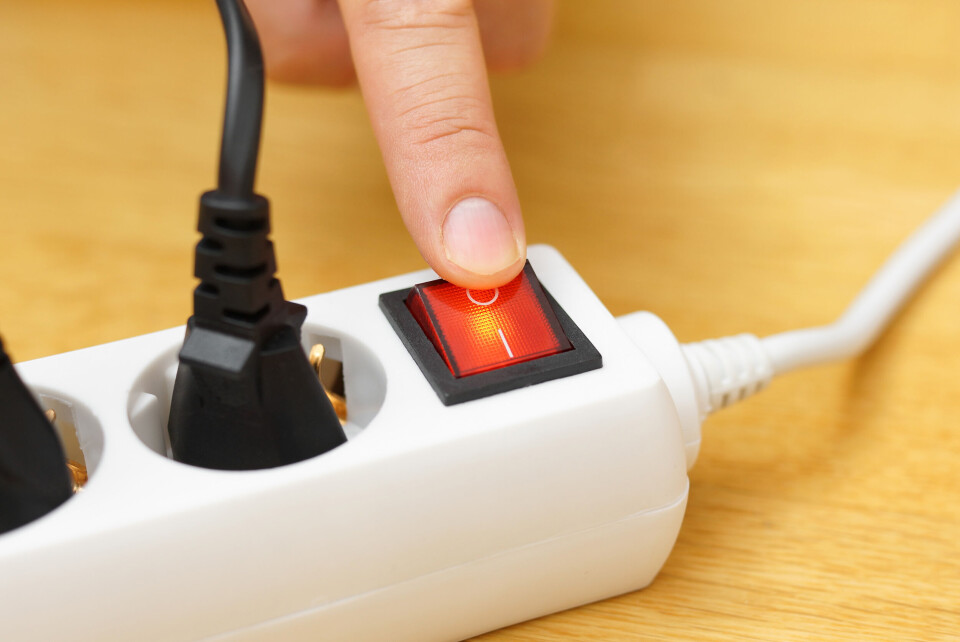-
How to check whether you will be fined for a speeding offence in France
Fines can be sent anytime after an incident
-
How to help wounded wildlife and strays in France
Is illegal to treat wild animals at home unless you have authorisation
-
Electricity bills at risk of steep rises, claims French consumer association
Bills could rise by as much as 20% next year, the association has said
How to save money on your energy bills in France this winter
Energy prices are set to remain high in the coming months. We look at solutions for reducing your gas and electricity costs

As energy prices have risen in the past year, 84% of people in France say they are worried how much gas and electricity they are using, and more than half (60%) say they are using less heating to keep costs down, according to figures from Le médiateur national de l’énergie.
Read more: Why do my French electricity bills keep rising despite competition?
However, there are alternatives to switching the heating off.
For gas bills, investing in energy-efficient heating systems can lead to savings in the long term.
And for electricity bills, it’s worth looking into how you use other electrical appliances in the home, as different products use electricity at different rates and some can drive up bills faster than others.
White goods such as refrigerators, freezers, dishwashers and washing machines can make up a third of electricity bills in households without electric heating, BFMTV reported.
Digital products such as televisions and computers can also be high consumers, with lighting being less costly, due to increased use of LED light bulbs.
How to save money on electricity bills
Switch off and unplug electronics when not in use
Consumers could save up to 10% on electricity bills by switching off appliances (excluding electric heating) when not in use, according to l'Agence de la transition écologique (Ademe).
And unplugging a TV left on standby could save 8KWh per year on average, Le Figaro reported. They equally reported that devices on “standby” cost €86 on average per household per year
Buying a power strip with an on/off button can be simpler than unplugging each item individually.
When you are using products, switching to low-energy use settings (such as ‘éco’ mode on washing machines) can also, obviously, help keep costs down.
Rethink daily habits
A few changes in your daily habits could help reduce your energy bills.
Regular cleaning can help your electronic appliances function better, closing curtains and shutters can help block out air currents, and good insulation will, of course, keep your home warmer without using heating.
Ademe advises that people only run dishwashers and washing machines when they are full, and reduce use of dryers when possible.
Covering pots and pans when cooking can help conserve heat and reduce energy use.
How to reduce gas heating bills
Adapting the type of heating you use can help reduce your bills.
Air-to-water heat pumps run on electricity, using hot air to transmit heat through radiators, underfloor heating and water for drinking and bathing.
Such systems are up to three times more energy efficient than traditional heating and can help save up to €1,000 per year depending on the type of home you live in.
Installation can cost from €10,000-15,000 some of which can be covered by government financial aid for home renovations.
Read more: What is France Rénov’ aid scheme – can I use it to renovate my house?
Wood burners powered often by wood pellets can be used as a heating source in themselves, and also to transmit heat to radiators and underfloor heating systems.
Prices for pellets are relatively low, but expected to increase due to shortages, and overall wood burners can help households save up to 50% on annual heating bills.
Installing a wood burner can cost up to €20,000, but many households will be eligible for financial aid for home renovations to help cover costs.
Gas condensing boilers (also known as high energy performance boilers) catch combustion fumes and transform them into steam, creating an internal system to capture extra energy to power heat production.
They are less noisy and polluting than traditional boilers and more energy efficient, helping households save up to 30% per year on heating bills.
They can also be a cost-effective solution costing €3,500-6,000 (with financial aid possible) and lasting for up to 25 years.
Related stories
75% of people polled in France feel their spending power has dropped
Rules get tougher on badly insulated homes in France
‘Hobbit’ housing grows with trend in France for low-impact living
























